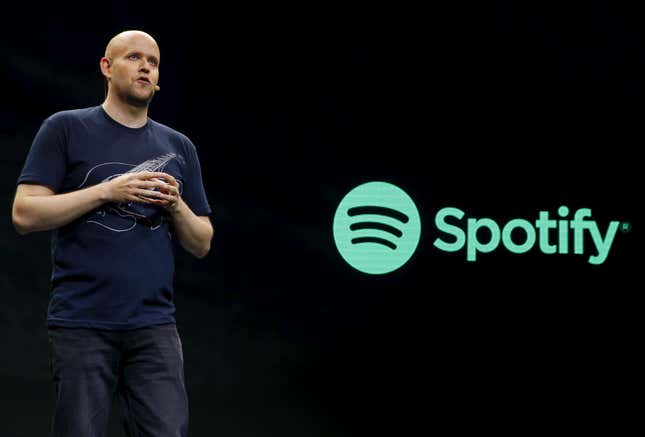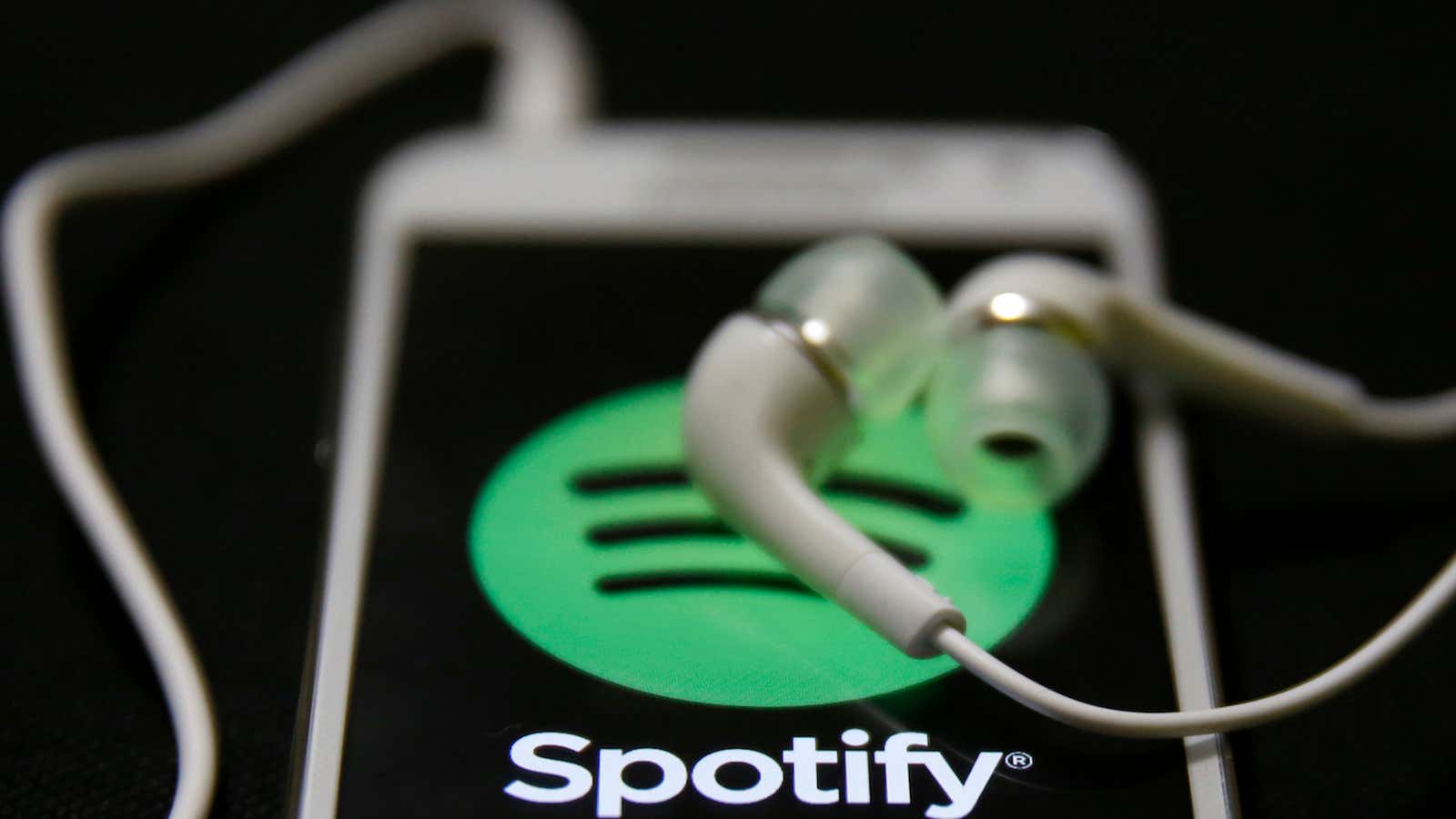Today, Spotify is holding its only investor meeting prior to its non-IPO. We don’t know if management will take any questions. If they do, here are the top five questions we’d ask.
Uh, when do you expect to be profitable?
Spotify is very good at losing money. While revenue grew by 49% and gross profit more than doubled in 2017, Spotify’s operating loss increased by 8% because of a whopping 64% increase in operating costs. Spotify has given almost $10 billion to musicians since its launch.
It’s unclear how management plans to change this direction. It’s hard to see gross margins increasing materially since Spotify’s “supply” of music is tightly controlled by four players and the Copyright Royalty Board recently ruled that music-streaming services need to increase payments to songwriters by 43% over the next five years.
It’s possible to forecast that the company could “make it up with volume” but only if management can slow operating-cost growth. Without some clear guidance on how management expects to build a sustainable business, Spotify’s significant losses could create a series of earnings disappointments.
Nice ARPU. Will it ever stop declining?
Spotify’s average revenue per paying user (ARPU) has declined each of the past two years and the rate of decline accelerated from 9% in 2016 to 14% in 2017. Some of this decline is due to the launch of a family plan that allows up to six people to share an account for 150% of the normal price. Some of it is also due to a lower-priced student plan.
Either way, declining ARPU isn’t a good trend—especially an accelerating decline—and it’s unclear what management thinks a steady state will be.
You know your competitors are pretty scary, right?
Apple, Alphabet, and Amazon are three of the largest companies in the world. They are also Spotify’s primary competitors.
These competitors control every mobile device, more online shopping than any other company, and have balance sheets that are bigger than the annual GDP of many, possibly most countries. Spotify may have the most total subscribers today but—make no mistake—this competition should not be underestimated. Indeed, the Wall Street Journal reported that Apple Music (which has no free tier) is on pace to overtake Spotify in the US by summer.
And, no, Spotify doesn’t have the opportunity to be like Netflix since it doesn’t have the same opportunity to create and own content. Unless they think they can find the next Michael Jackson, which is also something to ask the CFO.

If I buy shares, will the founders pretend they care about me?
Spotify’s founders own 39% of the company but control 80% of the voting power. The market has gotten used to super-majority voting structures at Alphabet and Facebook but it took time for those managers to earn the market’s trust. (Even millennial favorite Snap didn’t get a pass.) We don’t know what to expect from Spotify’s founders yet and as a shareholder you will have no say in how the company is governed or managed—ever.
Any reason we should bear the risk of all the legal action?
Most of the time, disclosures about material weaknesses are full of legal jargon that is intended to protect the company but isn’t too risky for investors. Spotify’s weaknesses are different.
Spotify has disclosed material weaknesses in its accounting for payments to music-license holders. That means that the company isn’t sure if it is paying each music label the correct amount. The company has identified this weakness in 2015, 2016, and 2017 and it states that the weakness is ongoing. The risk is that music labels will take legal action which could become a real mess. In our view, this is something the company should fix before going public. We can’t think of any excuse for not knowing how much to pay your most important suppliers and not fixing the problem for more than three years.
Our conclusion
Spotify going public provides a potentially exciting opportunity. Digital-music services are benefitting from our fourth industrial revolution themes: low-cost distribution, AI-enabled personalization, and experiences that lever improvements in devices.
Spotify is the largest streaming music service with rapidly growing revenue, users, and usage. If it can show a path to profitability, correct its financial issues, and build a better moat against its competitors, we could change our tune and get excited. But, unless the company can address the significant issues underlying our questions, we are keeping it off our investing playlist for now.




